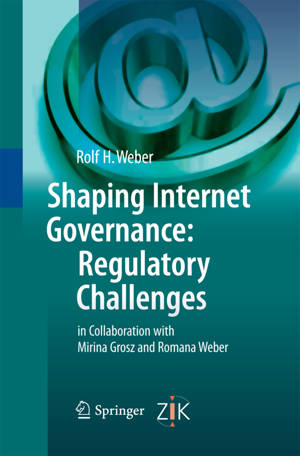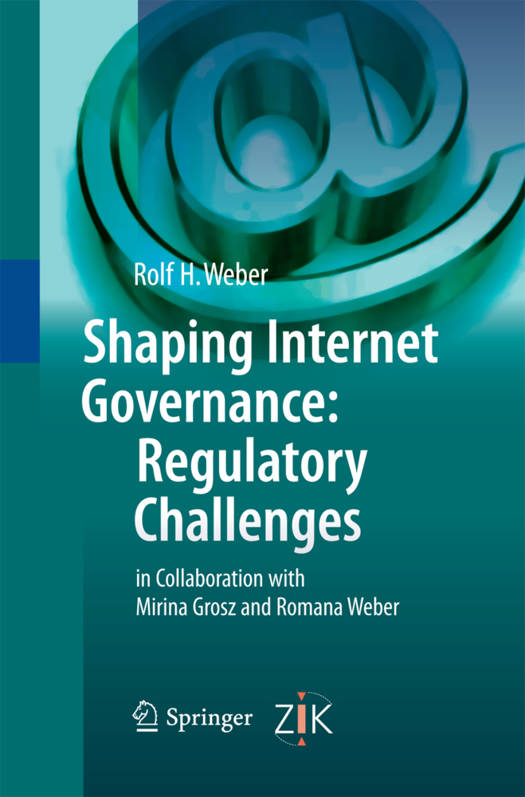
- Afhalen na 1 uur in een winkel met voorraad
- Gratis thuislevering in België vanaf € 30
- Ruim aanbod met 7 miljoen producten
- Afhalen na 1 uur in een winkel met voorraad
- Gratis thuislevering in België vanaf € 30
- Ruim aanbod met 7 miljoen producten
Zoeken
€ 105,45
+ 210 punten
Uitvoering
Omschrijving
The information society is a key issue in everyday life and a phenomenon enc- passing social, cultural, economic, and legal facettes. Currently, an information society's legal framework is gradually crystallizing under the newly introduced term of "Internet governance". During the last few years, intensive discussions about the contents of Internet governance have addressed manifold aspects of a possible regulatory regime. In light of the general comprehension that an international treaty structure is mi- ing and that self-regulation as a normative model does not sufce in all respects, new architectural and constitutional theories have been developed; furthermore, the international body of the Internet Governance Forum (IGF) came to life. N- withstanding the available literature on IGF, however, a thorough and systematic study sheding light on the main topics of Internet governance (such as legitimacy, transparency, accountability, and participation) and on the key regulatory issues (for example critical Internet resources, access, protection of civil liberties/- man rights, realization of security, safety and privacy standards, as well as the overcoming of the digital divide) from a legal perspective is not yet at hand. The present publication aims at discussing these legal challenges. This book has benefted from many inputs and encouragements from colleagues that I am deeply grateful for. In particular, I am indebted to the very meaningful discussions and valuable support in the preparation of the publication by my - search assistants lic. iur Mirin . a Grosz and lic. iurR . omana Weber, to lic. iur.
Specificaties
Betrokkenen
- Auteur(s):
- Uitgeverij:
Inhoud
- Aantal bladzijden:
- 280
- Taal:
- Engels
Eigenschappen
- Productcode (EAN):
- 9783642426384
- Verschijningsdatum:
- 8/11/2014
- Uitvoering:
- Paperback
- Formaat:
- Trade paperback (VS)
- Afmetingen:
- 156 mm x 234 mm
- Gewicht:
- 458 g

Alleen bij Standaard Boekhandel
+ 210 punten op je klantenkaart van Standaard Boekhandel
Beoordelingen
We publiceren alleen reviews die voldoen aan de voorwaarden voor reviews. Bekijk onze voorwaarden voor reviews.











